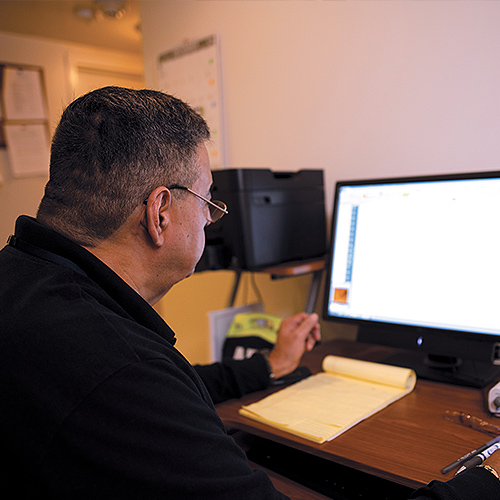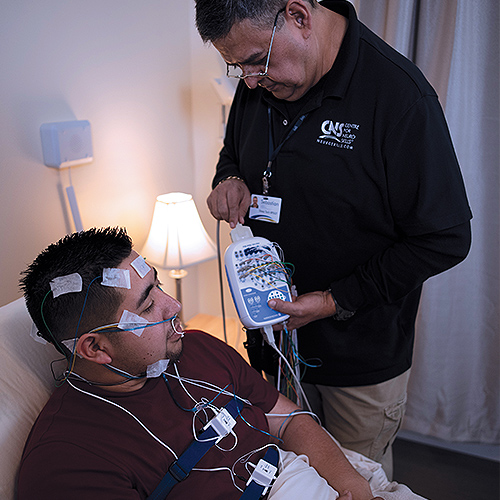Sleep Hygiene
Sleep and its role in Promoting Recovery
Returning to restful sleep can be challenging for anyone who experiences a brain injury. Trauma can cause disturbances in brain pathways that impede sleep, affecting the retention of skills taught in rehabilitation. Behavior, processing information, and rebuilding memory are core capabilities addressed in rehabilitation, but often impacted by sleep issues.
 CNS incorporates the treatment of sleep-related disturbances, enabling patients to achieve the best possible outcome. With this in mind, CNS has opened Sleep Analysis Centres within the residential buildings of our programs in Dallas, Texas and Bakersfield, California. (The Bakersfield Sleep Analysis Centre is in the process of becoming AASM accredited). Depending on patient need and treatment planning, patients with sleep challenges are given an evaluation, which includes:
CNS incorporates the treatment of sleep-related disturbances, enabling patients to achieve the best possible outcome. With this in mind, CNS has opened Sleep Analysis Centres within the residential buildings of our programs in Dallas, Texas and Bakersfield, California. (The Bakersfield Sleep Analysis Centre is in the process of becoming AASM accredited). Depending on patient need and treatment planning, patients with sleep challenges are given an evaluation, which includes:
- Screening questionnaire
- Review of medications and environmental factors
- Analyzing the patient’s current nighttime routine
- Clinical staff observation of and report on overnight sleep issues
- Clinical sleep evaluation and/or polysomnography
 State of the Art Facilities
State of the Art Facilities
In our 2-bedroom Dallas Sleep Analysis Centre, patients arrive for evaluation during sleep time. A certified technologist places electrodes on the patient to record brain activity during sleep. Data is sent to a board-certified sleep medicine physician, who creates a report on the diagnosis and treatment plan. To enhance patient comfort, the sleep environment features home-like rooms conveniently located in the residential rehabilitation setting.
The Dallas Sleep Analysis Centre is accredited by the American Academy of Sleep Medicine (AASM). This gold standard complies with the American College of Physicians’ recommendation that patients with sleep apnea or sleep disruption undergo an overnight sleep study, performed by polysomnography (PSG), a test used to diagnose sleep disorders.
A New Foundation of Healthy Habits
Once a study is complete, patients receive a treatment plan for better nighttime rest:
- Sleep hygiene practices are introduced
- Dietitians help patients adapt to better food choices
- Effective habits are discussed
- Use of positive airway pressure may be initiated/titrated

